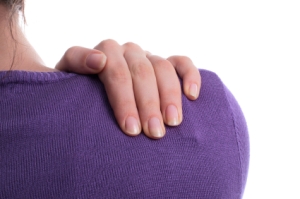Rotator Cuff Injury December 15, 2009
Posted by Joanna Wilson in Uncategorized.Tags: Phsyiotherapy, physiocare, RICE, RICE Treatment, rotator cuff injury, shoulder injury, Sporting injury, sporting injury reading, Sports injury, torn rotator cuff
trackback
 The most common sports injury to your shoulder joint is a rotator cuff injury. The rotator cuff is made up of a group of four muscles called the subscapularis, supraspinatus, infraspinatus and teres minor. These four muscles combined are called the rotator cuff tendon. This injury is common in swimmers and sports using rackets especially those involving repeated overhead motions with your arms.
The most common sports injury to your shoulder joint is a rotator cuff injury. The rotator cuff is made up of a group of four muscles called the subscapularis, supraspinatus, infraspinatus and teres minor. These four muscles combined are called the rotator cuff tendon. This injury is common in swimmers and sports using rackets especially those involving repeated overhead motions with your arms.
Shoulder sport injuries to your rotator cuff can be caused by two things – tendonitis, an inflammation of the tendon, or a tear, caused by sudden trauma or gradually by wear with age. An acute tear happens suddenly whilst doing an activity e.g. serving a ball, and you get a tearing sensation in the shoulder followed by pain down the arm. This will be followed by a
limited range of movement of the shoulder joint often unable to abduct the arm, pain on movement of the joint and muscle spasms.
A chronic tear develops over a period of time and affects people over the age of 40. Symptoms include pain in the joint especially on leaning on the elbow and pushing upwards on the shoulder or if sleeping on the effected joint and a feeling of weakness in the joint more common on the dominant side.
Initially treatment should be self-help. Rest your shoulder avoiding the activity which causes you pain. Apply ice packs to reduce inflammation. Take analgesics and anti-inflammatory medication. Do move your shoulder gently to prevent stiffness.
If symptoms persist more than 2-3 days seek help from your G.P or physiotherapist. A sports injury specialist can assess your injury and set out a treatment plan. They may give you stretching exercises to do at home to relieve symptoms and strengthen muscles to prevent further injury.
[…] Diagnosis will be made by your G.P. or physiotherapist. An x-ray or MRI may be needed for diagnosis, to rule out other causes of the pain i.e. rotator cuff tear. […]
[…] rotator cuff syndrome […]